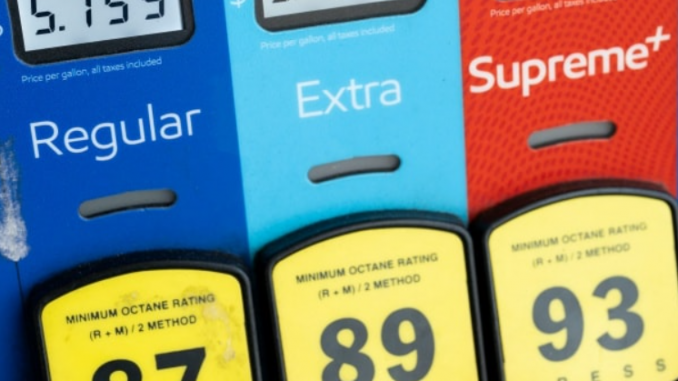
Environmental groups have reportedly taken issue with President Joe Biden’s call to Congress to suspend the federal gas tax, exposing a potential rift between the White House and progressive Democrats who are frustrated with the Biden administration’s failure to enact sweeping climate change reform.
“[Wednesday’s proposal] does not square up with his climate goals,” said John Paul Mejia, the chief spokesperson for climate change group Sunrise Movement, when noting the differences between President Biden’s proposal and his campaign promises before the the 2020 presidential election.
Collin Rees, the U.S. program manager for Oil Change International, speculates that calling for a gas tax — which requires approval from Congress — is a risky political move, since there’s little evidence it would significantly lower prices at the pump, long term.
“It’s bad policy and bad politics, frankly. I don’t think it’ll work as intended,” Rees told Newsweek.
Biden’s proposed gas tax holiday could be construed as a short-term victory for the fossil fuel industry, undercutting Biden’s 2020 promises of converting America to renewable energy sources.
At the same time, the Biden administration has taken heat for inflation reaching 40-year highs in America; and surging gas prices likely represent a primary source of contention.
The gas tax — which stands at 18.4 cents per gallon with regular unleaded, and 24 cents per gallon with diesel fuel — has never been suspended. It also hasn’t been raised since 1993.
Dating back to the 1930s, all gas tax revenues go to the federal Highway Trust Fund, which helps pay for roads, highway, and other infrastructure investments.
President Biden might not have a slew of Democratic Party allies for his gas tax proposal.
On Wednesday, House Speaker Nancy Pelosi, D-Calif., declined to fully support Biden’s gas tax holiday proposal, explaining the party’s leadership would need time to gauge support for the initiative.
“We will see where the consensus lies on a path forward for the President’s proposal in the House and the Senate, building on the strong bills to lower prices at the pump already passed by House Democrats including the Consumer Fuel Price Gouging Prevention Act and the Lower Food and Fuel Costs Act,” Pelosi said in a statement.
A published study from March, touting the Penn Wharton Budget Model, found that “individual consumers would save between $16 and $47 if the gas tax was suspended for 10 months.”
That estimate could be reduced by one-third if Biden’s proposal has a shelf life of only three months, according to Natasha Kaneva, the head of global oil and commodities research at J.P. Morgan.
“Even if 100 percent of the savings are passed along to consumers,” Kaneva told Newsweek, “18.4 cents out of $5 dollars per gallon is still a pretty small percentage.”
Kaneva then added, “At this point, there is not much that could be done” to drastically lower gas prices in the short term.
The current national average for a gallon of regular gasoline is $4.95, according to AAA, while the average price of diesel fuel sits at $5.81.
And according to GasBuddy.com, which tracks gasoline prices throughout the world, 13 states and Washington D.C. all have average gas prices exceeding $5.00 per gallon.
The list includes: Maine (average price: $5.04 per gallon), Indiana ($5.07), Michigan ($5.08), Washington D.C. ($5.15), Utah ($5.18), Idaho ($5.19), Arizona ($5.35), Illinois ($5.49), Hawaii ($5.50), Washington state ($5.51), Oregon ($5.52), Alaska ($5.57), Nevada ($5.60), and California ($6.35).
Via Newsmax
